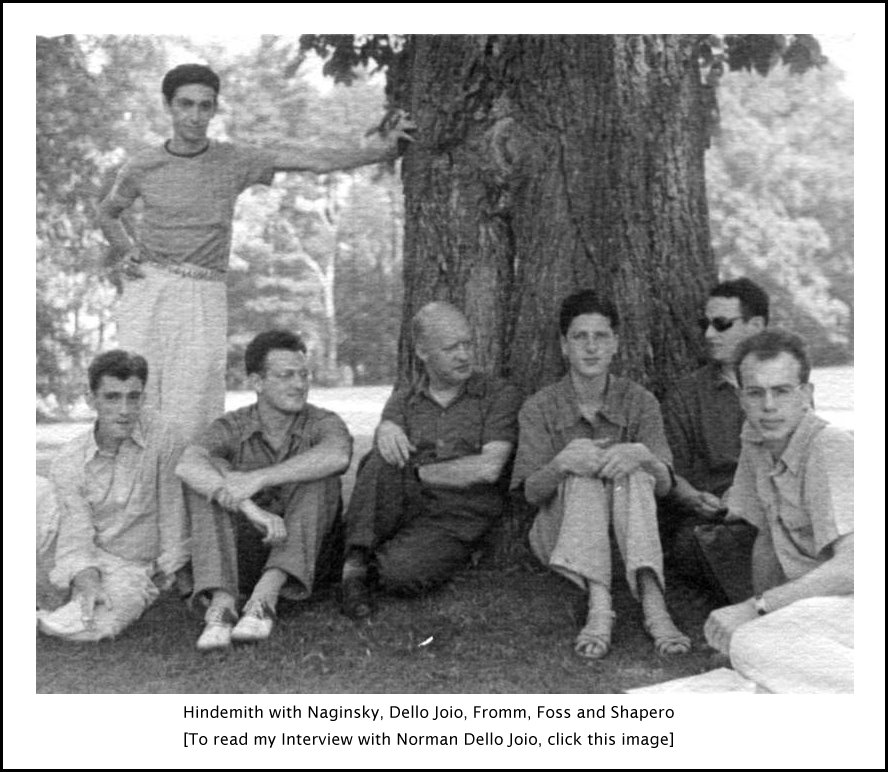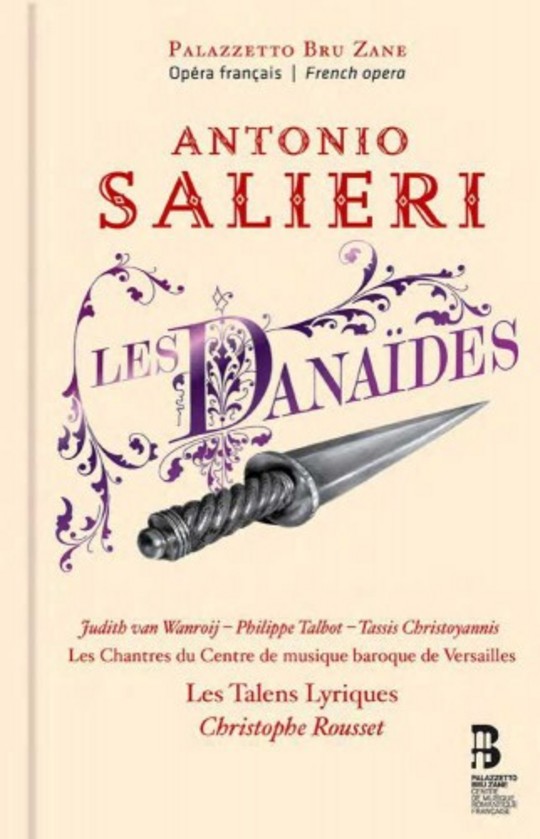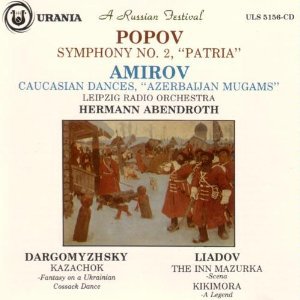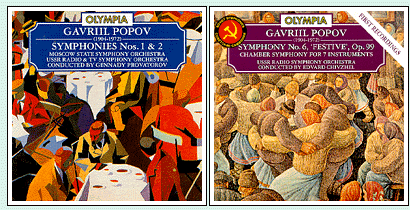From a 5 CD Music & Arts set, licensed from EMI, of the complete Symphonies of Beethoven by the Philharmonia Orchestra conducted by Otto Klemperer at the Vienna Festival, May & June, 1960. You may notice that some numbers are missing in my account of the tracks on these CDs. That's because I chose to omit the separately delineated applause tracks.
CD 4
Tr. 1-4......Sym. 5 in C Minor, Op. 67 (1808) (35'06)--rec. 31 May 1960
Tr. 6-10....Sym 6 in F Major, Op. 68 "Pastorale" (1808) (42'54)--rec. 2 June 1960
This Fifth is excellent, with an appropriate sense of drama. But then that can be said of really most Beethoven Fifths these days. Pride of place still goes to Fritz Reiner, Carlos Kleiber, and Rene Liebowitz.
I have heard Klemperer's 6th before, but this is the first time I have owned the classic 1960 Vienna cycle. It is much better than I remember it. One critic's summing up sticks in my mind. I forget the exact words, but something to the effect that Klemperer saw the 4th movement storm as just a light drizzle. Although it sounds a little stormier than that to me, I would not deny that it is rather less stormy than many other recordings, but who says it has to be? Why can't the storm be a light drizzle? Most storms that last less than four minutes are light drizzles.
Although Klemperer's is better than I had thought, it is still not a touchstone performance. For those, I go to Szell, Solti, C. Kleiber, Liebowitz, Mravinsky, Monteux, and Gardiner.
CD 5
Tr. 1-4....Sym 9 in D Minor, Op. 125 "Choral" (1824) (69'55)--rec. 7 June 1960.
Tr. 6.......Coriolan Overture, Op. 62 (1807) (8'19)--rec. 4 June 1960
First of all, lets take the last. This Coriolan Overture is good, but not what I would call outstanding.
This Ninth is another matter entirely. This is one of the great ones, again better than I remember it. The first movement is vigorous and massive; this man knows how to build to a climax and the fact that up until 1933 he was known primarily as a opera and pit orchestra conductor shows in the drama he builds in every movement, especially the two outer movements. Awesomely massive walls of sound, esp. at the beginning of "Seid umschlungen millionen..." It commands truly devotional attention. The one criticism I have is that sometimes the orchestra is so loud that it drowns out the voices of the soloists, but in this case that is truly a minor cavil.
This is right up there with the greatest ever, and I would not argue very strongly with anyone who says it is the greatest ever, period. I do like others, Toscanini and Szell among them, both of which have one thing in common--Robert Shaw was the choral director for both recordings. Another excellent one is the first Solti cycle, although Talvela was even better in the live performance I attended than he is on the recording. Other great ones are two by Furtwangler, one from 22 March 1942 and the other the 1951 Bayreuth recording. Other notable recordings are those by Rene Liebowitz, Fritz Reiner, Bruno Walter, John Eliot Gardiner, and the Klaus Tennstedt, one which the BBC Music Magazine listed as its "One to Avoid" not long ago. They were wrong. Wrong, I tell you, wrong! Another one I like, at least in the third movement, is the one by Benjamin Zander. You have to hear it and read his liner notes (a painful process, because Zander is a worse speller than Dan Quayle) to understand what I mean.
4 CD Brilliant Classics CDs--Boccherini: Complete Clavier Quintets, Op. 56 & 57 (12) on period instruments--Ensemble Claviere (Ilario Gregoletto, 1805 Schantz fortepiano, Rossella Croce, Giulia Panzeri, violins, S. Airoldi, viola, Enrico Contini, cello, rec. Ceneda--Vittorio Veneto, Treviso, Italy, June 2005 (CDs 1 & 2), & August 2005 CDs 3 & 4.
CD 1 (68'52)
Tr. 1-4......Clavier Quintet 1 in E Minor-Major, Op. 56/1, G. 407 (27'44)
Tr. 5-8......Clavier Quintet 2 in F Major, Op. 56/2, G. 408 (17'21)
Tr. 9-11....Clavier Quintet 3 in C Major, Op. 56/3, G. 409 (23'41)
CD 2 (57'12)
Tr, 1-3......Clavier Quintet 4 in E Flat Major, Op. 56/4, G. 410 (16'05)
Tr. 4-8......Clavier Quintet 5 in D Major, Op. 56/5, G. 411 (20'35)
Tr. 9-13....Clavier Quintet 6 in A Minor-Major, Op. 56/6, G. 412 (19'39)
These works, unfortunately, have long been neglected. I think I have an idea why. For one thing, you really do need a fortepiano for these; a pianoforte or a harpsichord would ovrwhelm or underwhelm, as the case may be, the other instruments. So, performance opportunities are limited.
These are uncomplicated works. They are wonderfully inventive with loads and loads of lilting, charming melodies, with some simple, brief contrapuntal episodes interpolated, and just enough unpredictablility to sustain the interest of the listener. And yet, they are also a little too complicated, and have just a bit too wide a dynamic range for them to serve as, say, suitable Sunday brunch music.
CD 3 (63'14)
Tr. 1-4......Clavier Quintet 1 in A Major, Op. 57/1, G. 413 (19'56)
Tr. 5-8......Clavier Quintet 2 in B Flat Major, Op. 57/2, G. 414 (24'32)
Tr. 9-13....Clavier Quintet 3 in E Flat Major, Op. 57/3, G. 415 (18'29)
These works are more of the same as Op. 56, except that many of the movements have cadences with a strong martial feel to them.
CD 4 (57'37)
Tr. 1-3......Clavier Quintet 4 in D Minor, Op. 57/4, G. 416 (20'00)
Tr. 4-6......Clavier Quintet 5 in E Major, Op. 57/5, G. 417 (17'01)
Tr. 7-10....Clavier Quintet 6 in C Major, Op. 57/6, G. 418 (20'18)
These qunitets seem somehow more mature and sophisticated than their predecessors. I could not find any information on when these were composed, or it there was any significant ddelay between the composition of the others and these three. It sure sounds like it. Sharper rhythms that sound vaguely more Beethovenesque, but still no galpumphing off-accents like you find in Beethoven. Very stylish.
Janos Starker: "The Warner Legacy"
CD 3 (74'17)--Except for Tr. 1-3, all recorded in MONO 4-7 June 1958, Abbey Road Studio 3--Gerald Moore, piano, tr. 4-17.
Tr. 1-3......Boccherini: Cello Concerto in B Flat Major, G 482 (22'20)--Cadenzas: Hutter--Carlo Maria Giulini, cond. Philharmonia Orch.--rec 29-30 May 1958, Kingsway Hall, London. STEREO
Tr. 4.........J.S. Bach: Orchestral Suite 3 in D Major. S. 1068: Air (4'21)
Tr. 5.........Kreisler: Allegretto in the style of Boccherini (3'43)
Tr. 6.........Saint-Saens: Allegro appassionato, Op. 43 (4'12)
Tr. 7.........Debussy: Preludes Book 1 # 8 "La fille aux cheveux de lin (arr. Feuillard) (2'25)
Tr. 8.........Chopin: Nocturne 2 in E Flat Major, Op. 9 # 2 (arr. Popper) (4'56)
Tr. 9.........Popper, David (1843-1913): Hungarian Rhapsody, Op. 68 (8'32)
Tr. 10.......J.S. Bach: Harpsichord Concerto 5 in F Minor, S. 1056: Arioso (4'44)
Tr. 11.......Schubert: Allegretto garzioso (arr. Cassado) (3'53)
Tr. 12.......Schubert: Moment musical 3 in F Minor. D. 780 (arr. Becker) (2'05)
Tr. 13.......Mussorgsky: Sorochintsi: Gopak (arr. Stutschewsky) (1'53)
Tr. 14.......Schumann: Kinderszenen. Op. 15: Trauermei (arr. Palaschko) (3'16)
Tr. 15.......Debussy: Petite Suite. L65: Menuet (arr. Gurt) (3'03)
Tr. 16.......Tcherepnin: Ode (1'68)
Tr. 17.......Paganini: Caprice in B Flat Major, Op. 1 # 13 (arr. Kreisler) (2'46)
The only substantial work here is the Boccherini Cello Concerto. All the others are bon-bons, encores, or excerpts from larger works, many of them meant for other instruments and transcribed for the cello, sometimes with piano accompaniement.
It sounds like the Boccherini is based on folk melodies or melodies inspired by simple peasant songs and dances of various nationalities. The movement is an allegro moderato, with the emphasis on the moderato. In other words, its slower than your average allegro. Both of the first two movements are slow, and have a ruminative, contemplative aura about them. The third movement is sprightlier, with catchy, simple themes, and a rather extended cadenza.
Starker was doubtless familiar with the Bach Air. He served under Reiner as the principal cellist of the Chicago Symphony before Frank Miller came on the scene, and it has been the regular practice at the CSO (perhaps other orchestras, too; I'd like to hear from others about the practices of other orchestras) to play the Air at the beginning of every concert in the week after a member or former member of the orchestra dies. It is a rather simple piece as far as the basics are concerned; whether it produces the desired effect or not is always a function of phrasing, and Starker does a fine job of that here.
The Kreisler piece is a sprightly little bon-bon with no particular profundity to it.
The Saint-Saens lives up to its name: fast and passionate. The Debussy is a lovely, impressionist reverie, and the Chopin. like all his nocturnes, is a slow, contemplative piece.
The Popper Rhapsody has, as the title suggests, a distinctly Hungarian folk music quality about it, and represents a nice change of pace after three slow pieces.
The Bach Arioso is a slower piece, almost as beautiful as the Air. The Schubert pieces are a bit faster and more facile. The Mussorgsky is a gallumphing peasant dance.
The Schumann Traumerei is, of course, a familar concert hall piece; Starker makes a good case for the notion that a cello transcription with piano accompaniement offers even more expressive opportunities than a solo piano performance. The other pieces are all good demonstrations of Starker's art, but are of no particular note.

















